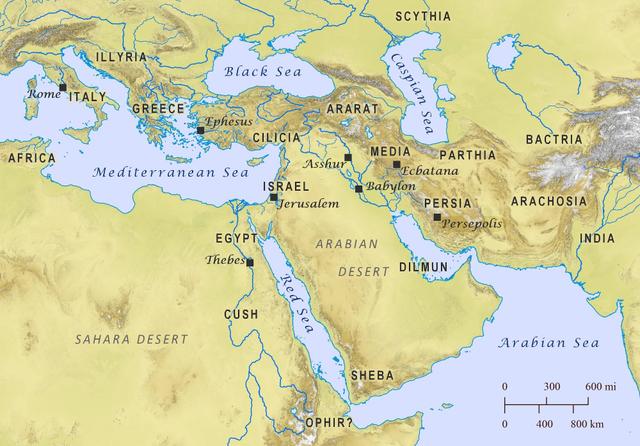Death is necessary to validate a covenant; death played a role in the Old and the New Covenants.
The Pauline Author is again comparing the Old Covenant and the New to show that the New is greater: For where a covenant is, there must of necessity be the death of the one who made it. For a covenant is valid only when men are dead, for it is never in force while the one who made it lives (vv 16–17). Last wills and testaments are not valid until the person dies. For a will to go into effect, there must be a death.
The Old Covenant was made valid with blood: Therefore even the first covenant was not inaugurated without blood (v 18). The Pauline Author describes the giving of the law detailed in Exodus 24—For when every commandment had been spoken by Moses to all the people according to the Law, he took the blood of the calves and the goats, with water and scarlet wool and hyssop, and sprinkled both the book itself and all the people, saying, “This is the blood of the covenant which God commanded you” (vv 19–20).
The Lord made a covenant with the Israelites, and they agreed to it. Then Moses sacrificed young bulls and goats and sprinkled both the tabernacle and all the vessels of the ministry with the blood (v 21) to ratify the covenant.
This represented the New Covenant that would be ratified with Christ’s blood. The Old and the New Covenants required blood. And according to the Law, one may almost say, all things are cleansed with blood, and without shedding of blood there is no forgiveness (v 22).
The Pauline Author is building to the conclusion that the daily temple sacrifices were a mere shadow of what was to come.
Biblical Text
16 For where a covenant is, there must of necessity be the death of the one who made it. 17 For a covenant is valid only when men are dead, for it is never in force while the one who made it lives. 18 Therefore even the first covenant was not inaugurated without blood. 19 For when every commandment had been spoken by Moses to all the people according to the Law, he took the blood of the calves and the goats, with water and scarlet wool and hyssop, and sprinkled both the book itself and all the people, 20 saying, “This is the blood of the covenant which God commanded you.” 21 And in the same way he sprinkled both the tabernacle and all the vessels of the ministry with the blood. 22 And according to the Law, one may almost say, all things are cleansed with blood, and without shedding of blood there is no forgiveness.
Check out our other commentaries:
-
Romans 9:6-8 meaning
God’s promises have not failed. Abraham was a faithful, obedient servant toward God, but that doesn’t mean all descendants of Abraham followed his example. There...... -
Acts 1:21-26 meaning
Peter states the qualifications for Judas’ replacement: he must be someone who followed Jesus from His baptism until His return to Heaven. Two men are...... -
Genesis 12:4-7 meaning
Abram, his wife and nephew leave Haran and travel to Canaan. Abram builds an altar for the Lord in Canaan. ...... -
Daniel 1:18-21 meaning
One of the central themes of the book of Daniel is God’s continued sovereignty for his people who trust and obey Him. Because Daniel and...... -
Exodus 28:29-30 meaning
God commands that the Urim and the Thummim be placed in the breastpiece over Aaron’s heart.......



